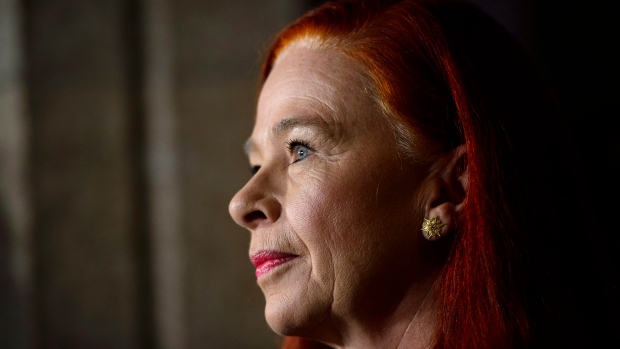Apr 3, 2018
Catherine Tait to become CBC president, the first woman to hold role
, The Canadian Press

OTTAWA -- Catherine Tait, a 30-year veteran of the Canadian and U.S. television and film industry, has been tapped to lead a digital revolution at CBC/Radio-Canada, becoming the first woman in the organization's history to hold the position.
Tait, who will officially begin her five-year term as president and CEO of the public broadcaster later this summer, called the position a dream job Tuesday during a morning news conference on Parliament Hill alongside Heritage Minister Melanie Joly.
Tait said she wants the broadcaster to increasingly think digital in order to deal with the ongoing disruption across the broadcast industry -- a symptom of the evolving technology and consumption habits that allow consumers to access content anywhere and any time.
The CBC needs to remain relevant to the many audiences it serves, she added, calling on the Crown corporation to be an inclusive storyteller for Indigenous Peoples, women, newcomers and LGBTQ communities, as well as a creator of quality local content.
"CBC/Radio-Canada, along with public broadcasters around the world, are under significant competitive pressure," Tait said.
"In order for public broadcasters to survive and to flourish, we must flourish on the services, news and programming that most connect with our public -- not just as one audience, but as many audiences. This is, after all, the power of digital."
Tait didn't provide many additional details of the changes she hopes to see at the public broadcaster. She said she had some ideas about the direction she wanted the CBC to take, but first wanted to talk with outgoing president Hubert Lacroix and other executives.
Tait, 60, has worked in the film and television business in Canada and the United States for more than 30 years, including time at Telefilm Canada and as a former president of Salter Street Films, which produced a CBC mainstay, "This Hour Has 22 Minutes."
The chairman of the committee that recommended Tait and others said she was the more audacious of the names that were put forward. Tom Clark, a former journalist, said Tait talked about some innovative and achievable ideas to implement at the public broadcaster and showed an understanding of the CBC and the challenges it faces.
"She got not only who the CBC was and what it means to the country, but she also got the extent of the challenges -- and challenges is a small word for a really big problem," Clark said.
"The reimagination of the national public broadcaster at a time when broadcasting is disappearing is a monumental task. She got both sides of the equation right."
Tait's appointment is the latest in a series of moves the Liberals have made at the public broadcaster that began in 2016 when it boosted funding to the CBC by $675 million over five years.
The first tranche of money, about $75 million, moved last year. This year, the funding doubled to $150 million, a level that will continue through to April 2021. Joly said the CBC has been investing the money "bit by bit."
The government also launched an overhaul last year of how members of the board of directors are chosen -- a response to complaints that the selection process was open to political interference and did not reflect Canada's diversity. On Tuesday, the Liberals announced the appointment of three new directors, and named Michael Goldbloom, an academic and former journalist, as chairman of the board.
"The CBC is at a turning point and we have the right management team, the right board to ultimately seize the opportunities that are out there," Joly said.







